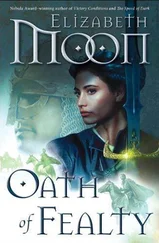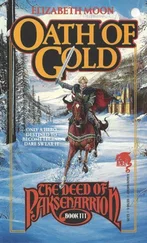Elizabeth Moon - Sheepfarmer's Dauther
Здесь есть возможность читать онлайн «Elizabeth Moon - Sheepfarmer's Dauther» весь текст электронной книги совершенно бесплатно (целиком полную версию без сокращений). В некоторых случаях можно слушать аудио, скачать через торрент в формате fb2 и присутствует краткое содержание. Год выпуска: 1988, ISBN: 1988, Издательство: Baen, Жанр: Фэнтези, на английском языке. Описание произведения, (предисловие) а так же отзывы посетителей доступны на портале библиотеки ЛибКат.
- Название:Sheepfarmer's Dauther
- Автор:
- Издательство:Baen
- Жанр:
- Год:1988
- ISBN:0-671-65416-0
- Рейтинг книги:3 / 5. Голосов: 1
-
Избранное:Добавить в избранное
- Отзывы:
-
Ваша оценка:
- 60
- 1
- 2
- 3
- 4
- 5
Sheepfarmer's Dauther: краткое содержание, описание и аннотация
Предлагаем к чтению аннотацию, описание, краткое содержание или предисловие (зависит от того, что написал сам автор книги «Sheepfarmer's Dauther»). Если вы не нашли необходимую информацию о книге — напишите в комментариях, мы постараемся отыскать её.
Sheepfarmer's Dauther — читать онлайн бесплатно полную книгу (весь текст) целиком
Ниже представлен текст книги, разбитый по страницам. Система сохранения места последней прочитанной страницы, позволяет с удобством читать онлайн бесплатно книгу «Sheepfarmer's Dauther», без необходимости каждый раз заново искать на чём Вы остановились. Поставьте закладку, и сможете в любой момент перейти на страницу, на которой закончили чтение.
Интервал:
Закладка:
“It’s fighting without food,” he said. “That and cold. They’ll be all right.” And some hours later, fed and rested, they were. Arñe was ready to return to the cohort, and Seli was already back.
“I’m not limping,” he said. “And if I can fight beside the wagons—which I was—then I can fight here.”
“What did the surgeons say?” asked Arcolin.
“Turned up their noses like they do. By Tir, Captain, you can leave Paks as corporal, but I’m staying here.” But Paks was more than willing to return to her place as file leader. What she wanted more than anything else was sleep.
They heard from the Sorellin militia—disgustingly smug at having rescued mercenaries—that the remnants of Siniava’s army had fled south, and were trying to cross the Immer at a ford. Fewer than a thousand were left to him.
“So they say,” said Arñe sourly. “I thought he was supposed to be down to five hundred two days ago.”
“True.” Paks yawned. “How I could sleep! But they’ve scoured the woods, Arñe—no more of them there. And surely he’d have used all he had in that trap.”
“I hope so. We were afraid you’d all be cut to pieces up here.”
Paks yawned again. “We could have been. It was near enough.”
That night the talk around the camp was how the Sobanai Company horse had linked with Sorellin’s foot to reach them in time. A long, lanky Sobanai hirstar was more than willing to explain.
“We’d been in the Eastmarches,” he said. “Keeping an eye on the trouble in Semnath and Falsith—just in case you wondered why Siniava got no reinforcements from the east. Then Sorellin came to Sir Seti, and asked for cavalry aid: they were marching to meet you, and the Blue Riders were out of touch. Sir Seti spared a cohort to come, and when we met with Sorellin’s troops, above Koury, we heard such that we thought haste wise. Only Sorellin was on foot and slow. We kept after them, and wouldn’t let them stop to celebrate their restday, or whatever it was. Then we met the Blue Riders, but came on anyway. Yesterday, came a big storm after midday; they wanted to halt. So did we—the horses were jumpy. But after the worst had passed, we saw riders ahead—Clarts. So then we heard of the trap, and they led us here, a hard march. We stopped last night only when no one could see, and moved again at first light.”
Paks realized she’d hardly seen a Clart rider all day. “How many of the Clarts got through?”
“I don’t know myself. Not many, I think. They were hit hard, they said, and those who could stayed to harry the rear of Siniava’s lines.”
“What’s going on in the east?” asked Stammel. “Does Siniava have guild support as in Cilwan?”
“Some. Cloth merchants, and such. He had strong factions in the east, even in Falsith. Probably a thousand to fifteen hundred left the East-marches to fight with him. There aren’t that many left, of course.” He grinned around the circle of listeners.
“And where’s Sofi Gannarrion in all this?” asked Kefer. “I thought he was supposed to help.”
The Sobanai rider laughed. “Surely you know—? No? He’s in Fallo, with the Duke. The Duke of Fall’s second son, Amade, is betrothed to Ganarrion’s eldest daughter. He’s not about to stir out of there and risk his bride-gift being damaged.”
“Well, I’ll be—”
“Besides, he wants the Duke’s support when he makes his bid for the throne.”
“Sofi? He’s serious about that?”
“So I hear. You know he’s always claimed to be a prince. Allied with the Duke of Fall, he’s planning to take his throne back.”
“Huh. I’d always thought it was just talk. He’s no use to us then—”
“Unless Siniava tried to march in Fallo. I daresay old Sofi will come out of the keep then.”
“I hope so. What’s it like over there? And what about crossing the Immer?”
“Rich land, good open farmland. Hardly any forest: Siniava can’t hide that way. Mud’s your main concern. The roads are soup when it rains. As for crossing the Immer, the nearest bridge is Koury; otherwise, ford it.”
Chapter Thirty-one
The next day they crossed the Immer at the same ford Siniava had used. The Duke’s column spent two days crossing, but started the pursuit well-fed and rested. Siniava’s trace was clear, bearing almost due east: discarded equipment and dying men littered the way. For three days they followed the trampled trail, but saw no enemy. The Sobanai riders returned to the northeast; the Clarts and a half-cohort of Blue Riders stayed with them.
On the fourth day, they sighted a large mass of troops moving slowly northeast, and followed them for several days until they found what they’d begun to suspect: these were the Falsith and Semnath reinforcements, already headed home. The Duke turned them south, toward Fallo. The next day they intercepted a courier; within an hour the news ran through the column. Fallo had closed its gates to the Honeycat, and Ganarrion was chasing him down the Imefal. He had fewer than seven hundred men left, and those were lean and travelworn.
“He’ll cut through the forest,” said Vik, “and head for the coast. What else can he do?”
“Try to get to the Immer and go downriver; that might work.”
“Does he have any troops left at Immervale?” asked Paks.
“He won’t have any troops anywhere after they hear about the last few weeks.”
They were marching as they talked, angling south and west to block any move to Immervale.
“But what if he crosses the Imefal and gets into the forest?” Paks did not want to trail Siniava into another forest trap.
Arcolin, riding beside them, grinned down. “He won’t.”
“But—”
“You remember Alured?” said Arcolin. Heads nodded. “He’s why Siniava can’t cut through the forest. He’d need Alured’s permission and guidance. And Alured—well, he’s finding it profitable to oppose Siniava.”
“But, sir, he’s a pirate,” objected Rauf. “He could be playing both sides.”
“He could. But he’s smart. He can see that Siniava’s beaten—he’ll choose the winning side, I expect. Especially since our Duke offered something he wants.”
“What’s that, sir?”
Arcolin laughed. “I can’t tell you that now. But it’s what he left the sea for, and he thinks we have it to give. Perhaps we do.”
Day after day they marched toward Immervale as their couriers kept contact with Ganarrion’s horsemen. Two days running rain slowed them—the Sobanai hirstar had been right about the roads—and finally they gave up and traveled the fields and pastures. Paks felt she had a permanent crick in her neck from staring off to the south all the time.
Paks had lost track of the days they’d marched when they came over a rise to see a small, straggling body of troops off to their left. And ahead, on top of a low ridge in front of them, were the banners of Vonja and Foss Council. They were squarely between the enemy and Immervale. The enemy army turned sharp south, and drew together.
“Now where’s he going?” asked Paks.
“The river. There’s nothing down there, but—” Stammel stopped and looked thoughtful.
“What?”
“I’ll ask the captain—I thought I remembered something.”
By nightfall it was obvious what Siniava had been making for: an old and partly ruined citadel reminiscent of Cortes Andres, built high on a rock bluff where the Imefal met the Immer. A great stone bridge spanned the Imefal below the citadel walls. Siniava had posted a rear guard here, but as the combined mercenary and militia forces came nearer, they withdrew before the archers were in range. Arcolin led his cohort across the bridge first, and swung right around the citadel, up a slope of broken rock to the forest that lay beyond its massive walls on the south side.
Читать дальшеИнтервал:
Закладка:
Похожие книги на «Sheepfarmer's Dauther»
Представляем Вашему вниманию похожие книги на «Sheepfarmer's Dauther» списком для выбора. Мы отобрали схожую по названию и смыслу литературу в надежде предоставить читателям больше вариантов отыскать новые, интересные, ещё непрочитанные произведения.
Обсуждение, отзывы о книге «Sheepfarmer's Dauther» и просто собственные мнения читателей. Оставьте ваши комментарии, напишите, что Вы думаете о произведении, его смысле или главных героях. Укажите что конкретно понравилось, а что нет, и почему Вы так считаете.












